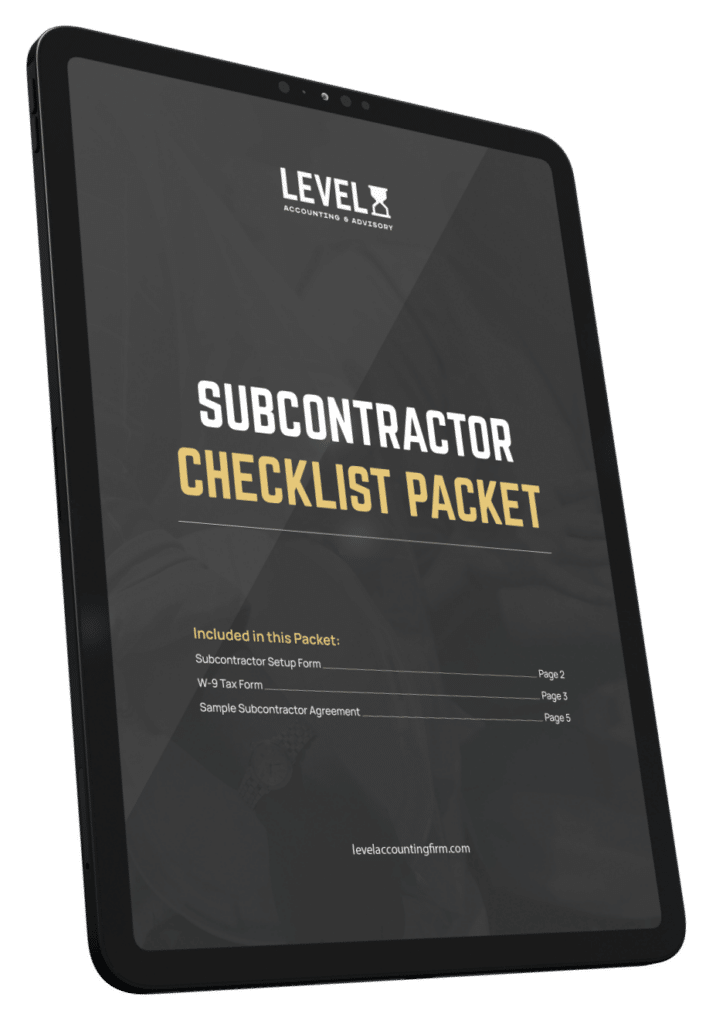Understanding the S-Corp Election
In business entities, the S-Corporation (S-Corp) stands out as a popular choice for many small to medium-sized businesses, including contractors. But what exactly is an S-Corp election, and why should contractors give it serious consideration?
In this guide, we’ll delve into the intricacies of the S-Corp election, its benefits, and why it might be the right move for contractors looking to optimize their tax structure and business operations.
What Exactly is an S-Corp Election?
Before diving into why contractors should consider an S-Corp election, let’s first clarify what it actually entails. An S-Corp election is a tax status designation made with the Internal Revenue Service (IRS) that allows a qualifying corporation to be taxed under Subchapter S of the Internal Revenue Code. This election enables the corporation to pass corporate income, losses, deductions, and credits through to its shareholders for federal tax purposes. Essentially, it shifts the tax burden from the corporate level to the individual level, potentially resulting in significant tax savings for eligible businesses.
Making the S-Corp election involves filing Form 2553 with the IRS and meeting specific eligibility criteria. These criteria typically include having a limit of 100 shareholders, all of whom must be U.S. citizens or resident aliens, and only one class of stock. Once approved, the corporation becomes an S-Corp for tax purposes, enjoying the benefits of pass-through taxation while maintaining the limited liability protection of a corporation.
The Benefits of S-Corp Election for Contractors
Now that we’ve covered the basics, let’s explore why contractors, in particular, should consider making an S-Corp election. One of the most significant advantages is the potential for tax savings. As independent contractors, individuals often face higher self-employment taxes, which include both the employer and employee portions of Social Security and Medicare taxes.
By becoming an S-Corp, contractors may be able to reduce their self-employment tax burden by paying themselves a reasonable salary as employees of the corporation and taking the remainder of their income as distributions, which are not subject to self-employment taxes.
Additionally, S-Corps offers flexibility when structuring compensation. Unlike sole proprietorships or partnerships, where all income is subject to self-employment taxes, S-Corp owners can divide their income into a reasonable salary and distributions. By doing so, contractors can potentially lower their overall tax liability while still ensuring they receive fair compensation for their work. This flexibility can be especially advantageous in industries where income fluctuates throughout the year or where certain projects result in higher earnings.
The Importance of Proper Tax Planning and Compliance
While the tax benefits of an S-Corp election for contractors are enticing, it’s crucial to emphasize the importance of proper tax planning and compliance. Electing S-Corp status requires careful consideration of various factors, including the contractor’s specific financial situation, business structure, and long-term goals. Moreover, maintaining compliance with IRS regulations is essential to avoid potential penalties or consequences.
Contractors considering an S-Corp election should consult with a qualified contractor accountant or tax advisor who can provide personalized guidance based on their unique circumstances. A professional can help assess whether an S-Corp election is the right choice and assist with the necessary paperwork and ongoing compliance requirements. Additionally, they can offer valuable insights into other tax-saving strategies and financial planning opportunities that align with the contractor’s objectives.
Is an S-Corp Election Right for You?
In conclusion, an S-Corp election can be a valuable tool for contractors seeking to optimize their tax structure and maximize their financial efficiency. By shifting from sole proprietorship or partnership status to an S-Corp, contractors may benefit from lower self-employment taxes, increased flexibility in compensation planning, and enhanced credibility with clients and business partners.
However, it’s essential to approach the decision to elect S-Corp status with careful consideration and expert guidance. Each contractor’s situation is unique, and what works well for one individual may not necessarily be the best choice for another. Therefore, thorough tax planning, compliance diligence, and consultation with qualified professionals are paramount to ensuring the successful implementation and maintenance of an S-Corp election.
Manage Your Tax Filings Today with Level Accounting
If you are considering an s-corp election for yourself, let our team at Level Accounting assist you. With years of experience exclusively serving entrepreneurs in the construction and trades industries, we provide you with a full suite of financial management services to ensure your company remains financially healthy while you focus more on doing what you love during your business hours.
To learn more about how we can help you optimize your tax structure and business operations, contact us today to get started.


